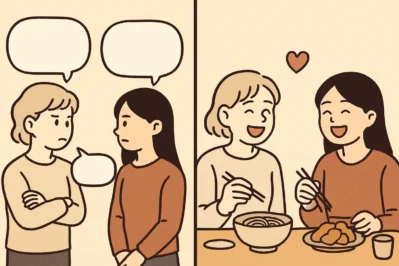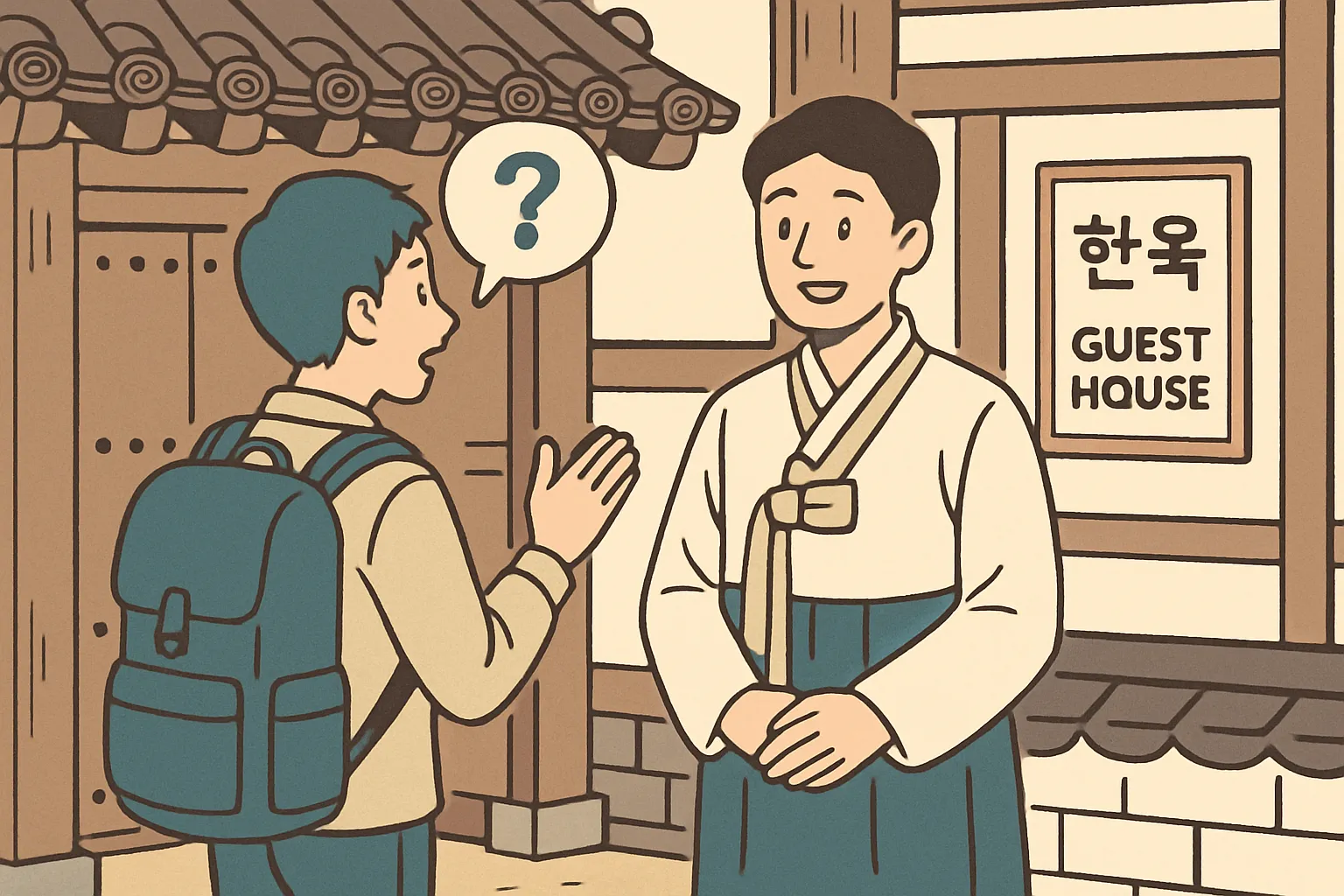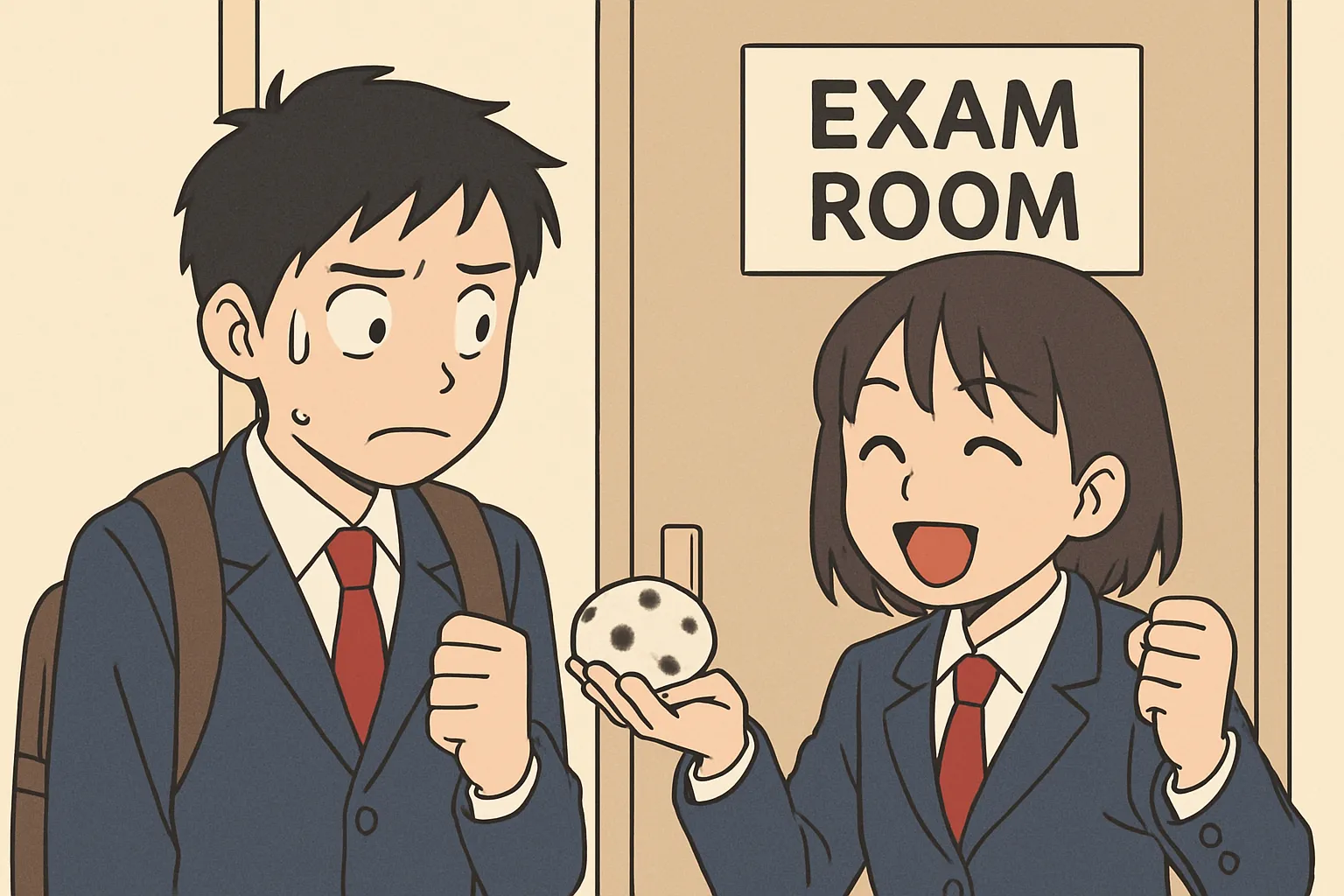From “Annyeong” to “Jjin-chin”: Your Guide to Making Real Korean Friends
Hello! This is Maeil Hangeul, here to upgrade your Korean skills!
Today, we’re diving into a topic that many of you living in or deeply interested in Korea have asked about: how to move beyond superficial acquaintances and build genuine, lasting friendships. It’s one thing to say hello, but it’s another to build a connection where you can truly be yourself.
Recently in Korea, as the international community grows, many people find themselves with a lot of “colleagues” or “classmates” but few true friends. If you’re ready to cross that bridge from polite small talk to meaningful conversations, this post is for you. Let’s learn the key phrases that unlock deeper relationships!
Core Expressions for Deeper Connections
Here are four essential expressions that signal a shift from a formal to a close relationship.
1. 말을 놓다 (mal-eul nota)
- Pronunciation: [mal-eul no-ta]
- English Meaning: To drop formalities; to switch to casual language (반말).
- Detailed Explanation: This is perhaps the most significant milestone in a developing Korean friendship. It’s the act of mutually agreeing to stop using formal language (존댓말) and start using informal language (반말). This is never done unilaterally; it’s a conversation and a mutual decision. Suggesting “우리 이제 말 놓을까요?” (Shall we drop the formalities now?) is a clear sign that you feel close to someone and want to deepen the friendship.
2. 밥 한번 먹자 (bap hanbeon meokja)
- Pronunciation: [bap han-beon meok-ja]
- English Meaning: “Let’s grab a meal sometime.”
- Detailed Explanation: This phrase can be tricky. On the surface, it’s a friendly invitation. However, it’s often used as a polite, non-committal way to end a conversation, similar to “We should totally get lunch sometime!” in English, with no real plan to follow up. The key for a C1 learner is to know how to turn it into a concrete plan. If someone says this to you and you want to actually meet, you should respond with a specific suggestion, like “좋아요! 그럼 다음 주 금요일 저녁은 어때요?” (Sounds good! How about next Friday evening?). This shows genuine interest.
3. 찐친 (jjin-chin)
- Pronunciation: [jjin-chin]
- English Meaning: A real/true friend; a bestie.
- Detailed Explanation: This is modern slang you’ll hear everywhere. It’s a contraction of 찐짜 (jjin-jja – “real”) and 친구 (chin-gu – “friend”). A
찐친isn’t just any friend; it’s someone you can count on, be completely honest with, and share your secrets with. It describes a ride-or-die friend. You wouldn’t use this term for a colleague you’re merely friendly with; you save it for the people who truly matter.
4. 속마음을 털어놓다 (sok-ma-eum-eul teo-reo-no-ta)
- Pronunciation: [sok-ma-eum-eul teo-reo-no-ta]
- English Meaning: To open up your heart; to confide in someone.
- Detailed Explanation: This phrase literally means “to shake out one’s inner heart.” It describes the act of sharing your deepest thoughts, worries, and feelings. This is a crucial part of forming a strong bond. When a friend is willing to
속마음을 털어놓다with you, it’s a profound sign of trust and intimacy. This is the kind of conversation you have with a찐친.
Sample Dialogue
Let’s see how these expressions might play out between Alex (a long-term resident in Korea) and Minjun (a Korean colleague). They have worked together for a year.
- A (Alex): 민준 씨, 저희 이제 꽤 친해진 것 같은데… 우리 말 놓을까요?
- (Minjun, I feel like we’ve gotten pretty close… Shall we drop the formalities?)
- B (Minjun): 와, 좋아요, 알렉스! 당연하죠. 사실 저도 그 말하고 싶었어요. 우리 이제 찐친이네요.
- (Wow, I’d love that, Alex! Of course. I actually wanted to suggest that, too. I guess we’re real friends now.)
- A (Alex): 다행이다! 맨날 말로만 “밥 한번 먹자“고 하고 한 번도 못 봤잖아요. 이번 주 금요일에 뭐 해요?
- (What a relief! We always say, “Let’s grab a meal sometime,” but we’ve never actually met up. What are you doing this Friday?)
- B (Minjun): 마침 약속 없어요. 사실 요즘 고민이 좀 있는데, 만나서 속마음 좀 털어놓고 싶어요.
- (I happen to be free. To be honest, I have some worries lately, and I’d like to meet and confide in you a bit.)
Cultural Tip & Trend Deep Dive
In Korea, the transition from 존댓말 to 반말 is a culturally significant event. It’s a rite of passage in a relationship that solidifies your bond. Initiating this conversation shows social awareness and a genuine desire for connection.
This act is deeply connected to the concept of 정 (jeong)—a fundamental Korean notion of deep, emotional connection, attachment, and loyalty. Building 정 is what turns an acquaintance into family. Sharing meals, dropping formalities, and confiding in one another are all ways to cultivate this powerful bond.
In modern K-dramas, you’ll often see the moment two characters switch to 반말 as a major turning point in their relationship, whether it’s romantic or platonic. Recognizing this moment will give you a much deeper understanding of the character dynamics and Korean culture itself.
Wrap-up & Practice
Today we learned four key expressions to transform your relationships in Korea from superficial to significant:
* 말을 놓다: To take the first step towards closeness.
* 밥 한번 먹자: To turn a polite phrase into a real meeting.
* 찐친: To describe your most treasured friends.
* 속마음을 털어놓다: To build trust by sharing your true feelings.
Now, let’s put your knowledge to the test!
- Fill in the Blank: You want to ask a close friend to confide in you about their problems. You could say: “무슨 일 있어? 나한테 __________ 봐.” (What’s wrong? You can ______ to me.)
-
Scenario Question: A Korean friend you’ve known for a while says, “우리 이제 말 편하게 하자!” What does this mean for your relationship?
Leave your answers and practice sentences in the comments below! Have you ever successfully made a 찐친 in Korea? We’d love to hear your story






